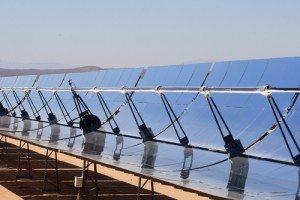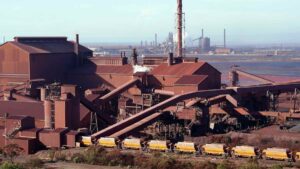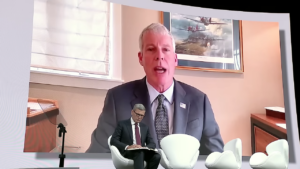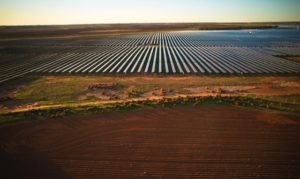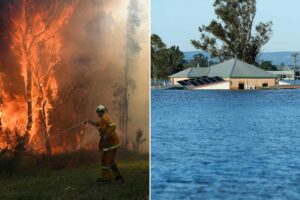South Australians calling for the development of solar thermal power in Port Augusta – to replace the region’s aging coal power stations – have been left disappointed, after a Select Committee set up to investigate the merits of the proposed development failed to offer a clear mandate.
The Repowering Port Augusta proposal, put together by Beyond Zero Emissions (BZE), details a plan to replace the Alinta Energy Northern and Playford B coal-fired power stations at Port Augusta with concentrating solar thermal plant.
In its interim report, just released, the Committee said it “considers the health of the Port Augusta community to be a very significant factor in support of BZE’s Repowering Port Augusta proposal.” But while the report leaves open the possibility of CST, it doesn’t go so far as to recommend a speedy path to implementation.
This is not the first time the community-driven campaign to replace Port Augusta’s highly polluting and outdated (and currently moth-balled) coal-fired power stations with Australia’s first large-scale solar thermal plant has been frustrated.
Initially, the idea was embraced by Alinta Energy itself, with plans to add CST technology to its existing power stations, or to use the technology to replace them entirely. But but in June, Alinta bowed out after its application for funding into a feasibility study was rejected by the Australian Renewable Energy Agency.
An earlier study had found that CST was viable for the region, but it needed support to bridge the gap between “first of its kind” operating costs – estimated at more than $200/MWh – compared with what it could possibly earn on market (around $100/MWh).
But supporters of the plan, such as Doctors for the Environment Australia (DEA), have argued the health costs of coal burning amount to billions of dollars – externalities that are not included in the cost of electricity, but instead are carried by health services and individual suffering.
This week, the DEA said it was disappointed that the Select Committee report had not delivered a stronger verdict.
“DEA has been urging investment in clean power for the State’s rust belt on health grounds. Doctors see first hand the health impacts on people working and living with coal mines and power stations,” said a DEA media release, noting a higher risk of illnesses and diseases like cancer, asthma and bronchitis and shortened lives for as long as the current power station keeps operating.
“The Select Committee has taken a good look at concentrated solar thermal power for this state and found merit. However, without commitment by government, South Australia’s power generation will remain in limbo,” said DEA spokesperson, Ingo Weber.
“Concentrated solar thermal power is being built overseas on commercial scale, yet in Australia, government and industry seem to lack the commitment to move away from dirty power,” said Dr Weber.
“Concentrated solar thermal would result in cheaper electricity in the long run, construction and manufacturing jobs and crucially, better health outcomes for the region,” he said. “We need political leadership and foresight for the twenty first century to ensure better health and sustainable jobs for all Australians.”

